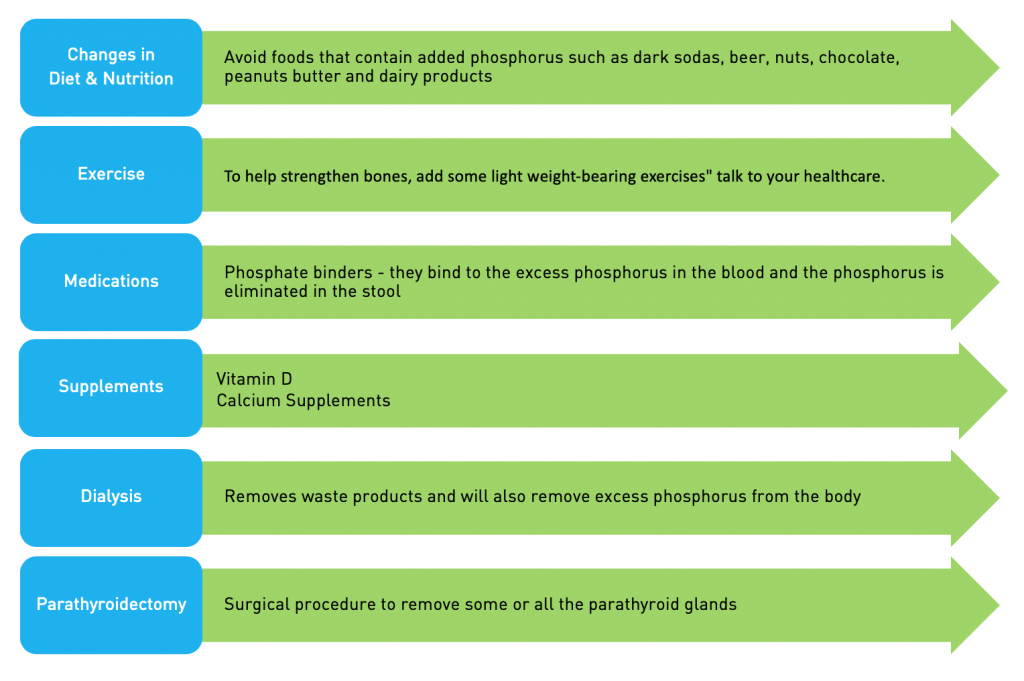Responsum for CKD
{{user.displayName ? user.displayName : user.userName}}
{{ user.userType }}

American Association of Kidney Patients
People with chronic kidney disease have low stores of calcium, phosphorus, and certain hormones needed for kidney function—but also bone health.
People with chronic kidney disease (CKD) may have inadequate stores of calcium, phosphorus, and certain hormones, which are not only needed for kidney function but also bone health. These minerals and hormones help keep the bones strong, but if out of balance, bones can become weak, brittle, and are more likely to break.
Chronic kidney disease indicates malfunctioning kidneys, which leads to a disruption in normal processes.
When kidneys are not healthy, the following processes malfunction:
Closely monitoring calcium, phosphorus, and PTH levels in your blood is essential for detecting damage to bone health.
Your doctor can do so with:
They will also take into account your family and medical history. It may take many years for your joints to become achy and sore, but the damage could be slowly occurring silently in the meantime. This makes preventive measures extremely important to maintaining bone health for people with CKD.
Aside from regular monitoring, both common medications and lifestyle and diet modifications are prescribed to patients with CKD and withering bone health. Improving vitamin D, calcium, parathyroid hormone, and phosphorus levels can be achieved through supplements, food choices, and phosphate binders (i.e., medication) to get rid of excess phosphorus, for example. In addition, weight-bearing exercise can improve bone strength.

Image source: AAKP
Mineral and bone disorders are a common problem in people with kidney disease. Almost everyone with kidney failure has endangered bone health. Therefore, doctors and patients need to work together to ensure patients’ bone health is being monitored and prioritized at the start of CKD diagnosis and throughout disease management in its entirety.
*American Association of Kidney Patients. (n.d.). Bone & Mineral Disease Information. https://aakp.org/center-for-patient-research-and-education/bone-disease/
Source: {{articlecontent.article.sourceName}}
Receive daily updated expert-reviewed article summaries. Everything you need to know from discoveries, treatments, and living tips!
Already a Responsum member?
Available for Apple iOS and Android
Add Comments
Cancel